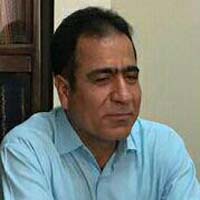Explaining the conceptual model of sexual education in virtual space based on philosophy for children
The purpose of this research is to explain the conceptual model of sexual education in virtual space based on philosophy curriculum for children. The method of this research to achieve the first goal is "content analysis" and to achieve the second goal is "deductive method of the type of practical analogy". The analytical community included all the documents, sources and databases related to the research topic, which were identified and then studied and analyzed in a targeted and deep way. The findings indicate that some of the most important factors affecting sex education in the virtual space based on philosophy for children are related to four cognitive, physical, social and emotional dimensions including: Meaning and acquisition of knowledge, reflection; practice in acquiring skills through practical training and collaborative activity, conscious behavior in the face of actions and natural changes of the body, situational awareness and commitment; use of individual and interpersonal skills in information exchange, society and democratic citizen. chastity and piety, the integrity of thoughts and actions) in the virtual space, which is a framework for the model of sex education in the virtual space based on philosophy for children, which can be achieved in the form of the goals of principles and educational methods. This model related to its final and intermediate goals is based on 5 principles: (cyber sexual intelligence, cyber sexual knowledge, understanding of technological sexual relations and sexual restraint, sexual responsibility and sexual ethics in cyberspace based on philosophy for children). The method of this model is the virtual community of inquiry.
-
Methods of mystical education based on the anthropological views of Allameh Hassanzadeh Amoli in cognitive, orientational and practical dimensions with emphasis on adolescence
Mohammad Daraei, Mohsen Farahani *, Roghayeh Mousavi
Scientific Journal of Islamic Education, -
A Philosophical Exploration of Dramaturgy as an Educational Approach: Examining Roles and Proposing Improvements for the Teacher Education System
Mohammad Faghedi *, Alireza Mahmmudnia, Ramazan Barkhordari, Yahya Ghaedy
Journal of Technology and Scholarship in Education, -
Designing the Elementary School Science Curriculum based on Bhaskar's Transcendental Realism
Yunes Amirahmadi *, Saeid Zarghami-Hamrah,
Journal of Theory and Practice in Curriculum, -
Formulating the Model of the Role of Ethics, and the Professional Qualifications of Physical Education Teachers, On Students' Academic Self-efficacy Beliefs
, Ali Karimi, Javad Jahan *
Training & Learning Researches,




